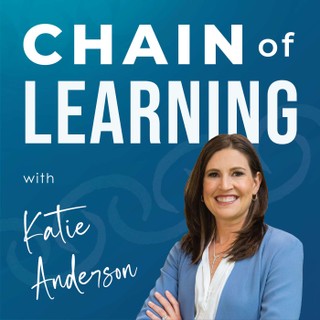Organizations invest thousands of dollars and countless hours into lean, Six Sigma, and other continuous improvement training programs. Certifications get awarded. Belts get earned.
But nothing actually changes.
Technical problem-solving training alone isn’t enough to drive meaningful impact. Without guidance and support on how to apply problem-solving tools—and the people-side of leading change—improvements stall.
In this episode of Chain of Learning, I'm joined by Tracy O’Rourke and Elisabeth Swan, co-founders of the Just-in-Time Café and co-authors of "The Problem-Solver’s Toolkit." With more than 50 years of combined Lean Six Sigma experience, they’ve trained and coached thousands of problem-solvers across industries—from healthcare and government to manufacturing and service—helping teams turn knowledge into real results.
Whatever problem-solving method you use—DMAIC, PDCA, or an A3—you’ll walk away with practical insights to help you bridge the gap between knowledge and action.
YOU’LL LEARN:
- Why traditional training programs fail to create lasting problem-solving capability—and what to do instead
- The importance of bringing others along in a change project and staying flexible and curious as the work evolves
- Why successful and sustainable problem-solving requires both technical know-how and people skills
- How to engage teams, navigate change, and keep momentum going while leading a process improvement team
- How to close the gap between learning and doing by turning skills into real-world results
ABOUT MY GUESTS:
Tracy O’Rourke is a Lean Six Sigma Master Black Belt, and co-founder of the Just-in-Time Café. As a sought-after consultant, instructor, and speaker with over 25 years of experience, Tracy specializes in cultural change, leadership development, strategic alignment, and process improvement.
Elisabeth Swan is a leadership coach, keynote speaker, award-winning author of “Picture Yourself a Leader”, and co-founder of the Just-in-Time Café. Elisabeth brings decades of experience helping Fortune 100 companies and nonprofits embrace conscious leadership and continuous improvement.
IMPORTANT LINKS:
TIMESTAMPS FOR THIS EPISODE:
01:37 The inspiration behind the “Problem Solvers Toolkit”
02:54 The disconnect between what is education and what leads to retention
04:22 The aha moments in creating the revised second edition in leading process improvement
05:55 Potholes and detours as a metaphor in process improvements not going the perfect way
06:36 The journey of continuous improvement in taking your team on the journey with you
07:26 Incorporating road games in getting the team involved in problem solving
11:03 What led Tracy and Elisabeth to want to help people in leading process improvement
13:31 The real meaning of being a leader — more than just being a senior executive
16:04 The difference between lean and Six Sigma
18:24 Why the process steps matter more than the name
19:22 Why people feel lean has failed
20:38 Additional learnings in making the second edition of “The Problem-Solver’s Toolkit”
21:53 Changes made in the second edition including graphics, examples and templates
22:19 What the Just-in-Time Café digital toolkit includes
25:23 How to solve problems based on solving similar problems
27:19 The 5S Baby spoof music video inspired by process solving tools
29:12 The next spoof song based on root cause analysis
33:16 Elisabeth’s takeaways from the Japan Leadership Experience in seeing worker happiness
34:53 The importance of focusing on human happiness and engagement for growth
36:53 Tracy’s takeaways from the Japan Leadership Experience
40:00 Top recommendation for being the most effective in getting traction in solving problems
41:41 The importance of building curiosity to get to know people and their experiences
43:34 What is involved in successful problem-solving
44:14 How to close the gap between learning and doing
Apply for the Japan Leadership Experience here:
https://kbjanderson.com/japantrip/



